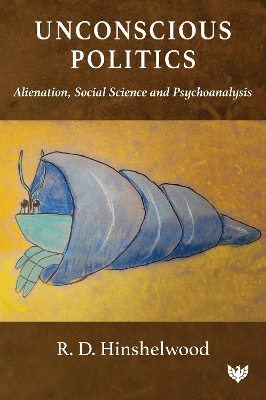
Unconscious Politics
Phoenix Publishing House (Verlag)
978-1-80013-235-1 (ISBN)
The social sciences and psychology see the origins of human experience from opposite directions: the inner world of the individual vs demands by society to conform. Politicians tend to follow the ideas of the social scientists and mostly ignore unconscious factors. Psychoanalysts, on the other hand, tend to focus on the human unconscious and mostly ignore the complexities of society, economics, and history. Yet, both disciplines are rooted in humanity.
Social forces impact on individuals; and society is but the creation of individuals themselves. Thus, factors from both sources have validity and must impact on each other. Hinshelwood has turned to psychoanalysis as the subjective science, to balance the attempted objectivity of social sciences. The creation of a psychosocial model to bring the sparring disciplines together has been attempted many times on a conceptual level but Hinshelwood starts with a singularly interesting convergence at the level of observation.
At a time where we face the imminent collapse of human civilisation, and possible extinction of the human species, it is important we attempt to understand the processes that have led us here. We need to find out where the forces of society and the imperatives of our individual selves converge in these particular threats. In order to regenerate some real optimism for our future, we need psychoanalysis to investigate the unconscious dynamics in where we went wrong.
A predominant theme identified by Hinshelwood is the gradual, long-term dehumanisation of humans, which has led to widespread alienation from both society and the self. This takes place alongside the convergence of the value of money with the value of a person. Hinshelwood’s use of the psychoanalytic theory of the unconscious mind to investigate humanity, society, and capitalism brings fresh insight to the intractable fractures we see in our social systems worldwide and hope for change.
R. D. Hinshelwood is a fellow of the British Psychoanalytical Society and a fellow of the Royal College of Psychiatrists. He worked in the National Health Service for over thirty years and then as professor at the University of Essex. In the 1970s, he worked at the Marlborough Day Hospital as it became a therapeutic community, and in the 1990s, he was director of the Cassel Hospital. He has written widely on Kleinian psychoanalysis and on the application of psychoanalysis to understanding organisational and social dynamics.
Acknowledgements
About the author
Introduction
Part I: Introduction
Politics and representation
Discovery: Self-alienation
Part II: Humanity
Comparisons and origins
Labour process: Alienation process
Projective identification: Dumping and sharing
Mental steady-states
Producing humans: Some conclusions
Part III: And society
Complexity theory and complex psychoanalytic theory
The model simplified as a diagram
Drivers, good or bad
Another matching
Another anxiety: guilt
The intergroup dynamic
Leadership, and followers
Part IV: Commodities
Indifference at Auschwitz
Gifts and trading
Money
Stereotyping
The law is blind
Transition from steady-state to steady-state
Alienation: Socially driven
Part V: What to do
Political action: Collaboration
What to do: Psychoanalytic action?
Epilogue
Appendix. The betrothal of two disciplines
Glossary
References
Index
| Erscheinungsdatum | 24.09.2024 |
|---|---|
| Sprache | englisch |
| Maße | 152 x 229 mm |
| Gewicht | 462 g |
| Themenwelt | Geisteswissenschaften ► Psychologie ► Psychoanalyse / Tiefenpsychologie |
| Geisteswissenschaften ► Psychologie ► Sozialpsychologie | |
| Sozialwissenschaften | |
| ISBN-10 | 1-80013-235-2 / 1800132352 |
| ISBN-13 | 978-1-80013-235-1 / 9781800132351 |
| Zustand | Neuware |
| Haben Sie eine Frage zum Produkt? |
aus dem Bereich


